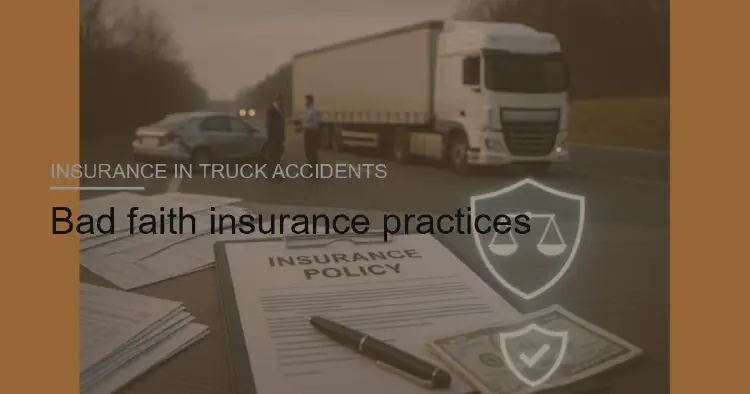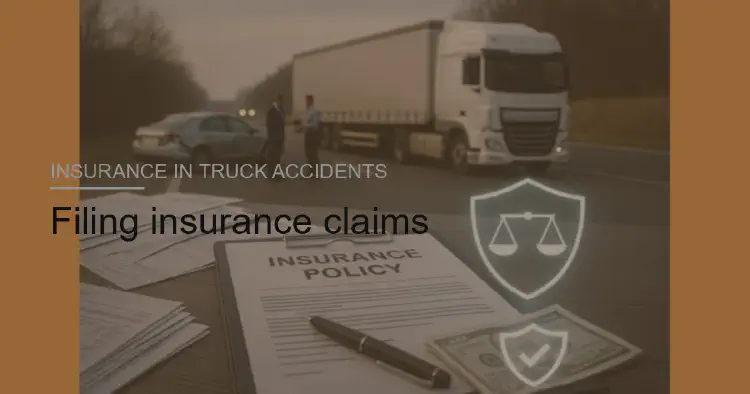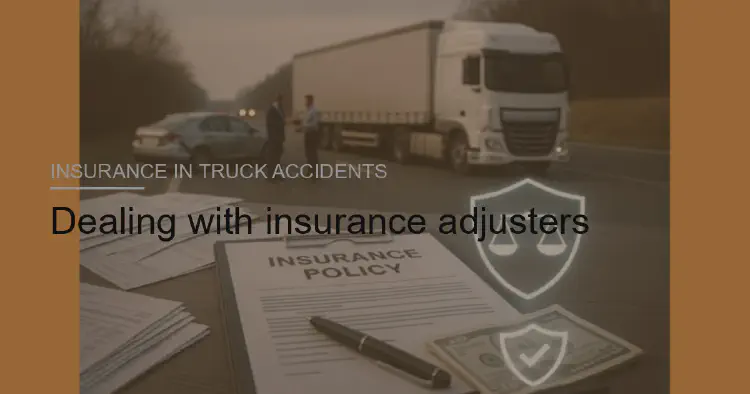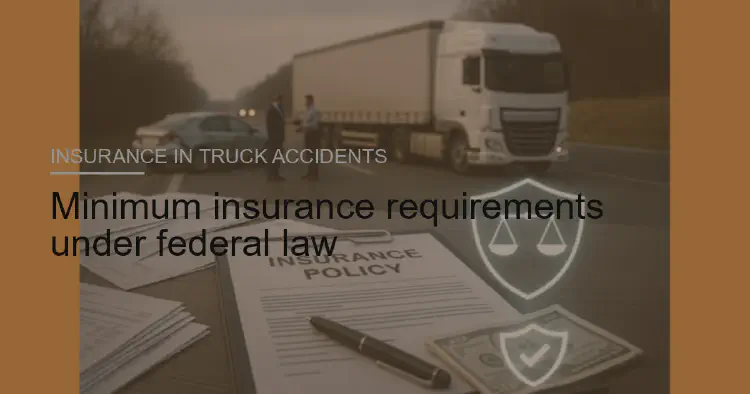
Bad faith insurance practices
Insurance companies owe a duty of good faith and fair dealing when handling claims. When they deliberately act unfairly, delay payments, or deny valid claims, they may be guilty of bad faith practices.

Insurance companies owe a duty of good faith and fair dealing when handling claims. When they deliberately act unfairly, delay payments, or deny valid claims, they may be guilty of bad faith practices.

After a truck accident, filing an insurance claim is the first step toward financial recovery. The process is complex due to multiple policies and high-value damages, requiring careful attention to detail.

Insurance companies often employ strategies to minimize payouts in truck accident claims. Recognizing these tactics helps victims and their attorneys counter them effectively.

After a truck accident, one of the first challenges victims face is communication with insurance adjusters. These representatives work for insurance companies, not for victims, and their goal is often to minimize payouts.

To ensure that victims of truck accidents can be compensated for damages, federal law mandates minimum levels of insurance coverage for all commercial carriers engaged in interstate commerce.

Because of the high risks and potential damages associated with commercial trucking, companies are required to carry specialized insurance policies. These cover not only the trucks themselves but also the wide range of liabilities that can arise after an accident.